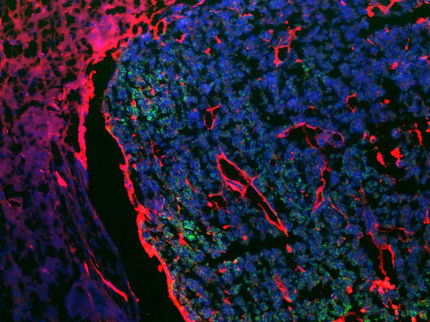SciClone and Sigma-Tau Report Thymalfasin Meets Primary Endpoint in Phase 2 Malignant Melanoma Trial
Advertisement
SciClone Pharmaceuticals, Inc. and Sigma-Tau S.p.A announced that SciClone's lead product candidate thymalfasin (ZADAXIN®, thymosin alpha 1) achieved its primary endpoint in a phase 2 clinical trial treating patients diagnosed with stage IV malignant melanoma. Results showed that thymalfasin in combination with dacarbazine (DTIC) chemotherapy tripled the overall response rate and extended overall survival by nearly 3 months compared to patients treated with DTIC, the current standard of care, and interferon alpha.
The phase 2 multi-center, randomized open-label study enrolled 488 patients with stage IV metastatic melanoma at 64 European clinical sites. The trial was designed to evaluate different dose levels of thymalfasin in combination with DTIC chemotherapy, with and without low-dose interferon alpha, as a first-line treatment for malignant melanoma. Most patients enrolled in the trial had liver and other metastases and the remaining patients had lung metastases and skin or lymph node metastases. Thymalfasin at all dose levels was well-tolerated in all treated patients, with no serious adverse events attributed to the drug.
When measured for overall tumor response, including complete response (CR) and partial response (PR), all patients in the treatment arms containing thymalfasin showed a greater overall tumor response than those in the control arm. Patients treated with the 3.2 mg dose of thymalfasin in combination with DTIC without interferon alpha showed an overall tumor response of 12.1%, compared to 4.1% for patients in the control group treated with DTIC and interferon alpha.
When measured for overall survival, all patients in the treatment arms containing thymalfasin reached a longer median survival than those in the control arm. Patients treated with the 3.2 mg dose of thymalfasin in combination with DTIC without interferon alpha reached a median survival of 9.3 months, compared to 6.6 months for patients in the control group treated with DTIC and interferon alpha. Median progression free survival was 1.87 months for the group of patients treated with the 3.2 mg dose of thymalfasin in combination with DTIC without interferon alpha, compared to 1.81 months for the control group treated with DTIC and interferon alpha. Even though the median progression free survival times were similar, the Hazard Ratio (HR) comparing 3.2 mg of thymalfasin together with DTIC versus patients treated with DTIC and interferon alpha was 0.74, which translates into a 26% reduction of the risk of disease progression for patients treated with 3.2 mg of thymalfasin.





















































